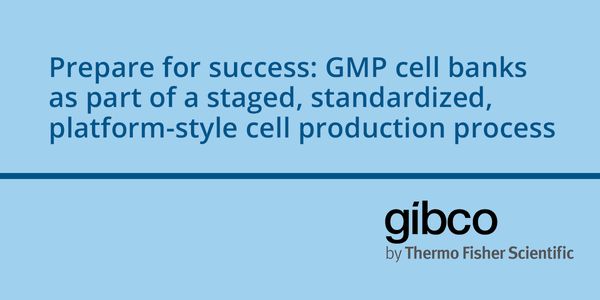Disease
Disease: is a disorder of structure or function in a human, animal, or plant, especially one that produces specific signs or symptoms that is not simply a direct result of physical injury.
-
Cellular research is optimal when using physiologically-relevant cell phenotypes and genotypes of human origin. This assertion has accelerated the adoption of primary cells, stem cells, and i...
Isolated hepatocytes or their enzymes comprise the basis of most in vitro DMPK and toxicity assays used to predict human hepatic outcomes. Because hepato-specific functions are typically lost...
Advanced Cell Diagnostics’ RNAscope products and assay services are utilized widely for tissue-based gene expression analysis in early target validation, preclinical animal efficacy and...
Speaker:
Christopher Bunker, PhD
Recent clinical successes in cancer genome-inspired personalized medicine have been a major breakthrough in drug discovery. However, 98% of the patients have an incomplete therapeutic respons...
FEB 27, 2019 | 8:00 AM
DATE: February 27, 2019TIME: 8:00am PST Pluripotent stem cells (PSCs) can form any tissue or cell in the body, and are the ideal starting material to manufacture...
FEB 26, 2019 | 11:00 AM
DATE: February 26, 2019TIME: 11:00am PST, 2:00pm EST Osteosarcoma is the most common type of primary bone cancer affecting adolescents and children attributed to...
Speaker:
Luke Tattersall, BSc Biomedical Sciences, PhD Candidate
Sponsored By: Thermo Fisher Scientific/Gibco
FEB 26, 2019 | 9:00 AM
DATE: February 26, 2019TIME: 9:00am PST, 12:00pm EST In an era of increasingly high-throughput, large-scale biology, with companies, government and non-prof...
Speaker:
Andrew Brooks, Ph.D.
, Shawn Levy, Ph.D.
, Brad Hamilton
, Fay Betsou, Ph.D
Sponsored By: Brooks Life Sciences
FEB 20, 2019 | 9:00 AM
DATE: February 20, 2019TIME: 9:00am PST ...
Pharmaceutical research and development efforts are often both inefficient and suffer from a high attrition rate of drug candidates within the clinical phase of development. Most drug t...
The lung is a highly complex organ, comprised of more than 40 cell types that are responsible for various important functions, the lung’s complexity contributes to the subsequent challe...
Experimental models that promise to replace animal tests that are currently required for drugs and chemicals are rapidly proliferating. This includes a number of novel solutions offered by bi...
Approximately 30% of drugs have failed in human clinical trials due to adverse reactions despite promising pre-clinical studies, and another 60% fail due to lack of efficacy. The NIH Tissue C...
Speaker:
Danilo Tagle, PhD, M.S.
Presented at: Laboratory Animal Sciences Virtual Event Series 2019
























